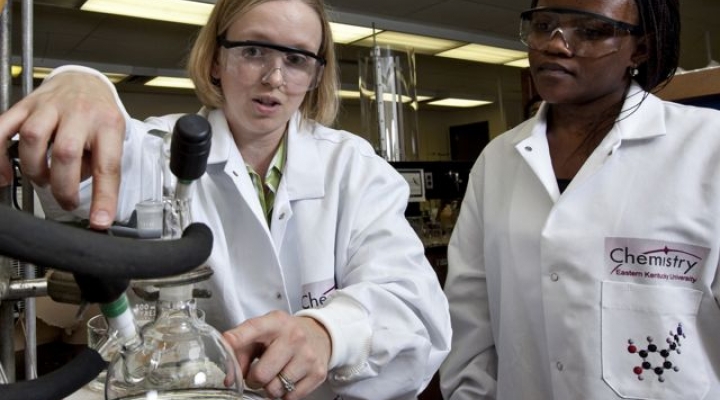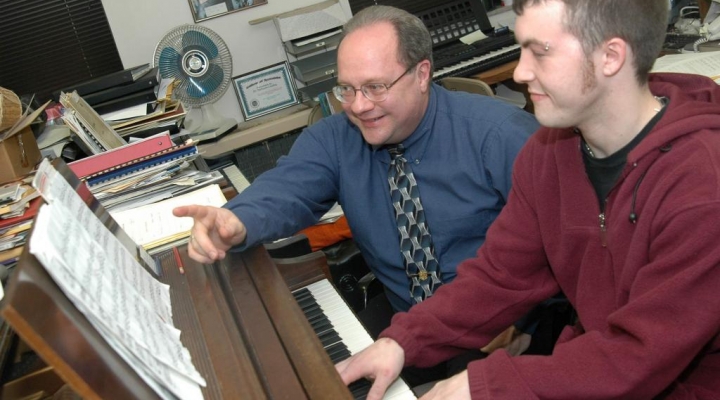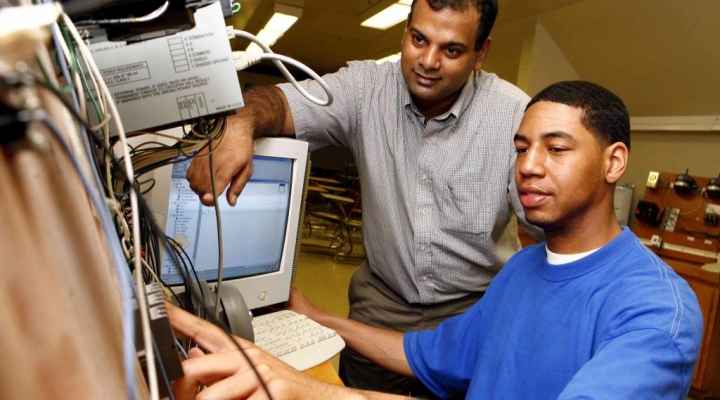Starting a Project at EKU
"If we knew what it was we were doing, it would not be called research, would it?" - Albert Einstein
Action 1: Discover the Possibilities
Students can communicate with their professors about possible research that might be available in their discipline or seach a specific department's website about opportunities. Speak with peers that are currently performing a project to determine what might be available.
http://our.eku.edu/student-information-session
Action 2: Connect with Faculty Mentors
View our faculty mentor list to find a professor that works in your area of interest. Once a potential faculty member has been identified, you have two choices.
1. Complete the mentorship match-up form provided on the UR&CE website. At this point we will take the time to facilitate an appropriate match between mentor and mentee. We will contact the mentor for you and get the ball rolling.
2. Contact that faculty mentor directly to discuss project possibilities and setup an appointment. Email an individual faculty member to introduce yourself and let them know you are interested in research possibilities. Ask for an appointment to discuss research possibilities with them. Do not email a group of faculty members at the same time. Make sure to prepare for the meeting: read any available publications, make a list of questions about the work, discuss why you want to do research.
Action 3: Make a Plan
If a project has been identified, the faculty mentor and students need to work out logistics and be aware of expectations, which would involve agreeing on a timeline (make sure time commitment to a project will not interefer with coursework), schedule progress meetings/reports, etc. to ensure success.
If at first you do not succeed...If you do not get a project from a particular faculty member, please remember that not everyone has positions available for everyone. In addition, one may not have the required experiences yet to work on a particular project (however, time may be available to acquire skills to eventually work on a project). Having a couple of choices with several potential faculty mentors will increase chances to interesting projects. Be persistent and one will become included in an interesting research or creative opportunity.
Action 4: Get to Work!
All the searching and planning has lead to this: Doing the work! The more you put into the project, the more you will get out.
Action 5: Present or Display
Once progress has been made, projects become less plan and more product. This is the time to show off this product. Take the time to present you project well and attract other professionals in the field. This valuable insight into the current professional world cannot be found in the classroom. Remember: Unless it is recorded, it never happened.




